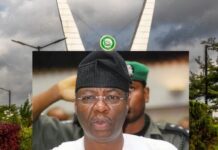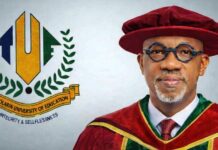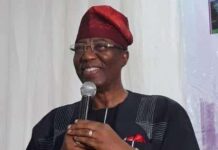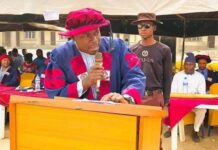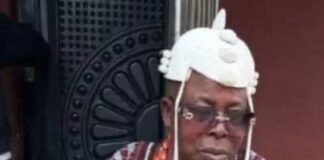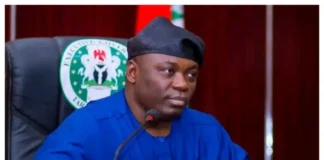The Nigerian military has reacted to a ‘coup’ comment made by the deputy senate president, Ike Ekweremadu.
The defence headquarters described the comment of Mr Ekweremadu, on the possibility of a military coup as derogatory.
According to a statement released on Thursday, John Agim, defence spokesman, asked the public to “disregard the apprehension “of the lawmaker.
Ekweremadu while commenting on the floor of the senate on Wednesday, said: “The problem in Nigeria is that our democracy is receding. Who says army cannot take over, let us not joke with our democracy that is the issue.”
Ekweremadu said this in response to the attack on some of his colleagues and actions which the upper legislative chamber consider undemocratic.
But Agim said though Ekweremadu’s comment may be sincere, it had the capacity to cast a shadow of doubt on the military’s loyalty to the president.
The spokesman reminded the public that in line with reforms to usher-in democracy in 1999, the government had taken measures to professionalise the armed forces by retiring politically-inclined officers from service, to meet the demands of an emerging democracy.
He said the current set of officers are apolitical.
“In the light of this; the defence headquarters wish to state clearly that, the Nigerian military has come of age and is in tune with best international military practices of complete and total subordination to democratic governance,” the statement read.
“Shortly, after the transition from a military to a democratically elected government in 1999, officers of the armed forces of Nigeria, who were quasi-political, were honourably eased out of service. This was done to avoid indoctrination of other officers in the military in order to enable the democratic government commence a re-professionalisation process of the armed forces.
“The process commenced in collaboration with international organisations such as the United States armed forces and the British military. By 2009, from the basic military training institutions through units and formation reorientation programmes to top management workshops and seminars for the military, it became clear that the armed forces of Nigeria have been re-professionalised to be totally subordinate to political leadership and democracy in the country.”



